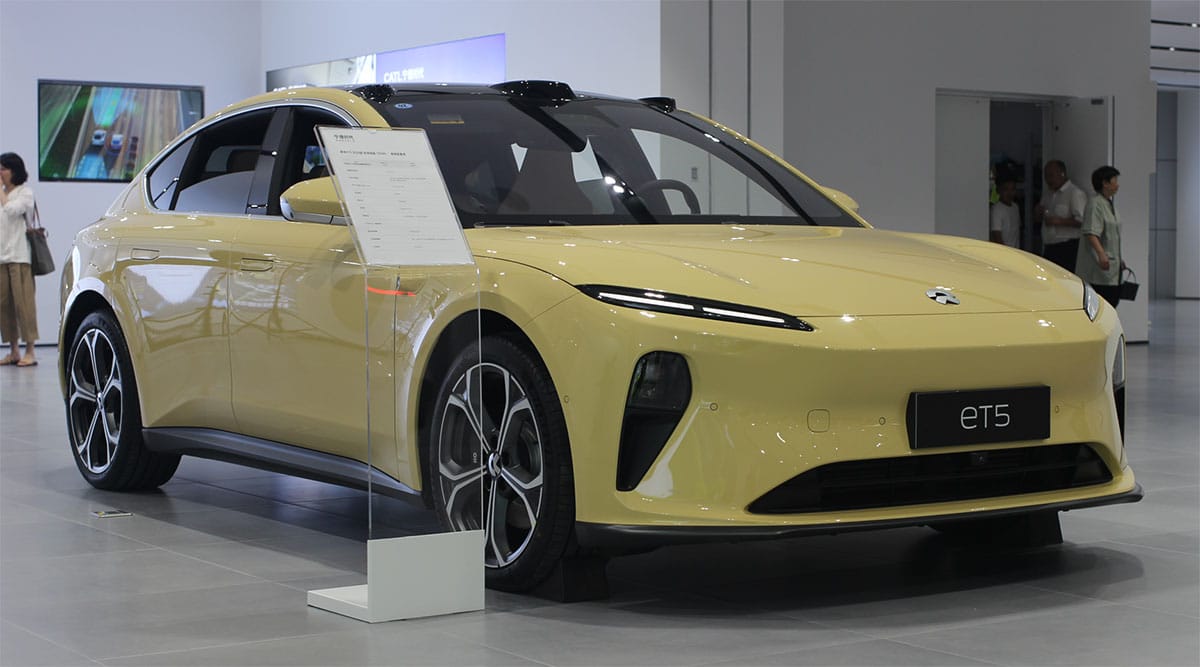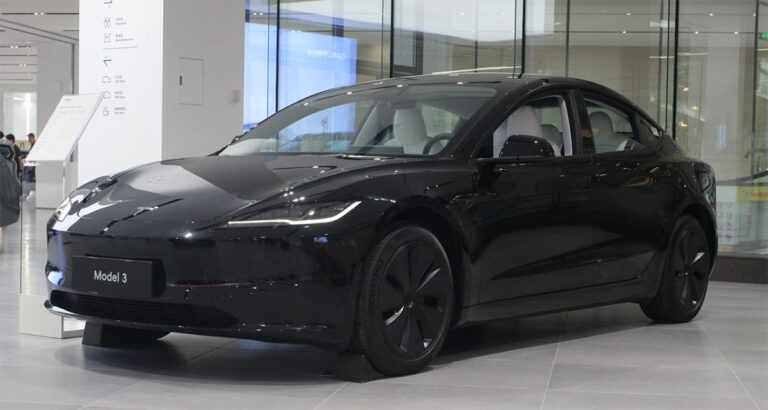The European Commission has published the definitive tariff rates in the Official Journal, with the additional tariffs to take effect from October 30, and the provisional duties imposed on July 4 will not be collected.

The European Commission announced on October 29 that it had concluded its anti-subsidy investigation into imports of battery electric vehicles (BEVs) from China, deciding to move forward with the imposition of additional tariffs but saying that it continues to discuss price undertakings.
The countervailing duties will be imposed for five years, and those tariffs will come into effect the day after they are published in the Official Journal, according to a statement yesterday.
Meanwhile, the EU and China continue to work on alternative, WTO-compliant solutions to effectively address the issues identified by the investigation, the statement said.
Definitive duties will be collected as of entry into force. The provisional duties imposed on imports of BEVs from China on 4 July 2024 will not be collected.
Hours after the statement was released, the definitive duty rates were published in the Official Journal, meaning that the additional tariffs will be effective from October 30.
Higher tariffs faced by automakers in EU (on top of original 10%)
| Companies | Additional Tariff | Note |
|---|---|---|
| BYD | 17.0% | List separately |
| Geely | 18.8% | List separately |
| SAIC | 35.3% | List separately |
| Tesla Shanghai | 7.8% | List separately |
| Aiways | 20.7% | Cooperating, not sampled |
| JAC | 20.7% | Cooperating, not sampled |
| BMW Brilliance | 20.7% | Cooperating, not sampled |
| Chery | 20.7% | Cooperating, not sampled |
| China FAW | 20.7% | Cooperating, not sampled |
| Changan Automobile | 20.7% | Cooperating, not sampled |
| Dongfeng Motor | 20.7% | Cooperating, not sampled |
| Great Wall Motor | 20.7% | Cooperating, not sampled |
| Leapmotor | 20.7% | Cooperating, not sampled |
| Golden Dragon Bus | 20.7% | Cooperating, not sampled |
| Nio | 20.7% | Cooperating, not sampled |
| All other companies | 35.3% |
The European Commission formally launched an anti-subsidy investigation into imports of electric vehicles (EVs) originating in China on October 4, 2023, claiming that they are benefiting from unfair Chinese subsidies and are distorting the European market.
On October 4 of this year, EU member states voted to impose additional tariffs on BEVs imported from China.
These tariffs will be additional to the original 10 percent, with different EV makers facing different rates.
Of the companies sampled, Tesla (NASDAQ: TSLA) received the lowest rate, at 7.8 percent, according to the definitive duty rate published in the Official Journal.
BYD (HKG: 1211, OTCMKTS: BYDDY) was at 17.0 percent, Geely at 18.8 percent and SAIC Motor at the highest rate of 35.3 percent.
EV makers that cooperated with the investigation but weren't sampled faced an additional tariff of 20.7 percent, while other non-cooperating companies had a tariff of 35.3 percent.
Nio (NYSE: NIO), Xpeng (NYSE: XPEV), and Leapmotor are listed among the EV makers that cooperated with the investigation but were not sampled, and they face an additional tariff of 20.7 percent.
Despite the EU's decision to impose countervailing duties on Chinese EVs, both sides are still exploring alternative solutions.
Following the disclosure of the European Commission's final ruling on the countervailing investigation on August 20, the China Chamber of Commerce for Import and Export of Machinery and Electronic Products (CCCME), with the authorization of 12 EV makers, submitted a price commitment proposal on August 24 to the European Commission, according to a previous statement by CCCME.
On October 16, CCCME said that in the more than 20 days since September 20, the Chinese and European technical teams held eight rounds of consultations in Brussels, but failed to reach a mutually acceptable solution.
On October 25, the European Commission said it and the Chinese side had agreed to hold further technical talks soon on possible alternatives to tariffs on Chinese-made EVs.
In the statement yesterday, the European Commission reiterated it was willing to negotiate price undertakings with individual exporters, as allowed under EU and WTO rules.
However, China disputed this, and the CCCME on October 16 accused the European Commission of making a move that would shake the foundations of the negotiations and mutual trust, and cause disruption to the consultations between the two sides.
Today, China's Ministry of Commerce said that technical teams from both sides are conducting a new phase of consultations in the hope of reaching a mutually acceptable solution as soon as possible to avoid an escalation of trade friction.
